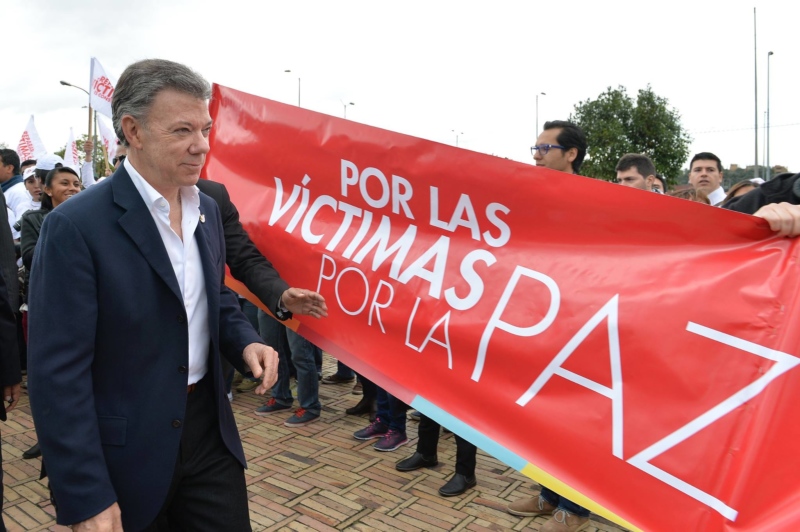Colombia-Venezuela Relations: What Are the Prospects?
Colombia and Venezuela have a history of rocky relations characterized by short bursts of improvement and deterioration.
From the outset of his presidency in 2010, Juan Manuel Santos has pursued one overriding objective: ending Colombia’s five-decade-old armed conflict with the Revolutionary Armed Forces of Colombia (FARC). Formal negotiations began nearly three years ago, and though both sides made progress on a five-point agenda, one exceedingly tricky issue — with huge political and legal implications — stubbornly stood in the way: whether the FARC commanders would be prosecuted and would accept paying a price for their many crimes.
On Wednesday, Sept. 23, a novel formula for addressing that issue — commonly referred to as “transitional justice” — was announced in Havana, Cuba, where the negotiations have been taking place. A glowing President Raúl Castro stood between Santos and FARC leader Timoleón Jiménez, alias “Timochenko,” as the two longtime bitter foes clasped hands. Santos was en route to address the U.N. General Assembly in New York, where the transcendence of this breakthrough accord will surely be his chief message to the world.
Colombia and Venezuela have a history of rocky relations characterized by short bursts of improvement and deterioration.
On August 7, an important chapter in Colombian-Venezuelan relations that has coincided with the presidencies of Alvaro Uribe and Hugo Chavez will come to an end. These last eight years have been a rollercoaster, with moments of great tension but also occasional pragmatism.
After decades of violence, peace remains a coveted yet elusive goal in Colombia.
 Facebook / Juan Manuel Santos
Facebook / Juan Manuel Santos